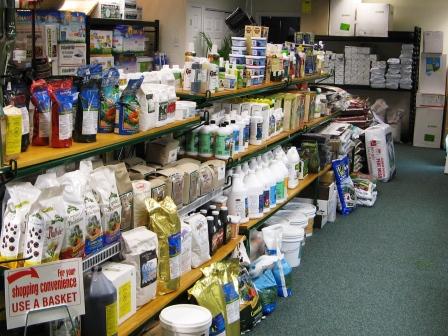http://inhabitat.com/plants-can-talk-to-each-other-by-clicking-their-roots/
http://www.sciencedirect.com/science/journal/13601385
Watch what you say around your houseplants — they can probably hear you, and they might even be talking about you. The idea that plants communicate with each other is normally based in science-fiction or fantasy, but new research out of The University of Western Australia reveals that this actually may be the case. UWA Postdoctoral Research Fellow Dr. Monica Gagliano has discovered that our green friends not only react to sounds, but they can also communicate with each other via “clicking noises.”
Gardeners have long believed that what music they play affects the growth of their plants, but Dr. Gagliano’s research, done with colleagues Professor Daniel Robert at the University of Bristol (UK) and Professor Stefano Mancuso at the University of Florence (Italy), shows that the roots of young plants emit and react to particular sounds.
“Everyone knows that plants react to light, and scientists also know that plants use volatile chemicals to communicate with each other, for instance, when danger – such as a herbivore – approaches,” Dr Gagliano said. ”I was working one day in my herb garden and started to wonder if maybe plants were also sensitive to sounds – why not? – so I decided as a scientist to find out.”
Through a series of experiments, Dr Gagliano and her team found that the roots of young corn plants made regular clicking noises. They also found that when the roots were suspended in water, they ‘leaned’ towards the source of any sound that was “emitted in the region of 220Hz”. Interestingly, this is within the frequency range that the roots themselves emit.
The team’s research, published in the leading international journal Trends in Plant Science, concludes that the discovery of plant communication needs serious investigation as it “leaves serious gaps (in) our current understanding of the sensory and communicatory complexity of these organisms.” Gagliano also added that ”it is very likely that some form of sensitivity to sound and vibrations also plays an important role in the life of plants.”
So if you notice your houseplants leaning towards you, it could be because they enjoy the sound of your dulcet tones.

http://www.sciencedirect.com/science/journal/13601385
Watch what you say around your houseplants — they can probably hear you, and they might even be talking about you. The idea that plants communicate with each other is normally based in science-fiction or fantasy, but new research out of The University of Western Australia reveals that this actually may be the case. UWA Postdoctoral Research Fellow Dr. Monica Gagliano has discovered that our green friends not only react to sounds, but they can also communicate with each other via “clicking noises.”
Gardeners have long believed that what music they play affects the growth of their plants, but Dr. Gagliano’s research, done with colleagues Professor Daniel Robert at the University of Bristol (UK) and Professor Stefano Mancuso at the University of Florence (Italy), shows that the roots of young plants emit and react to particular sounds.
“Everyone knows that plants react to light, and scientists also know that plants use volatile chemicals to communicate with each other, for instance, when danger – such as a herbivore – approaches,” Dr Gagliano said. ”I was working one day in my herb garden and started to wonder if maybe plants were also sensitive to sounds – why not? – so I decided as a scientist to find out.”
Through a series of experiments, Dr Gagliano and her team found that the roots of young corn plants made regular clicking noises. They also found that when the roots were suspended in water, they ‘leaned’ towards the source of any sound that was “emitted in the region of 220Hz”. Interestingly, this is within the frequency range that the roots themselves emit.
The team’s research, published in the leading international journal Trends in Plant Science, concludes that the discovery of plant communication needs serious investigation as it “leaves serious gaps (in) our current understanding of the sensory and communicatory complexity of these organisms.” Gagliano also added that ”it is very likely that some form of sensitivity to sound and vibrations also plays an important role in the life of plants.”
So if you notice your houseplants leaning towards you, it could be because they enjoy the sound of your dulcet tones.





